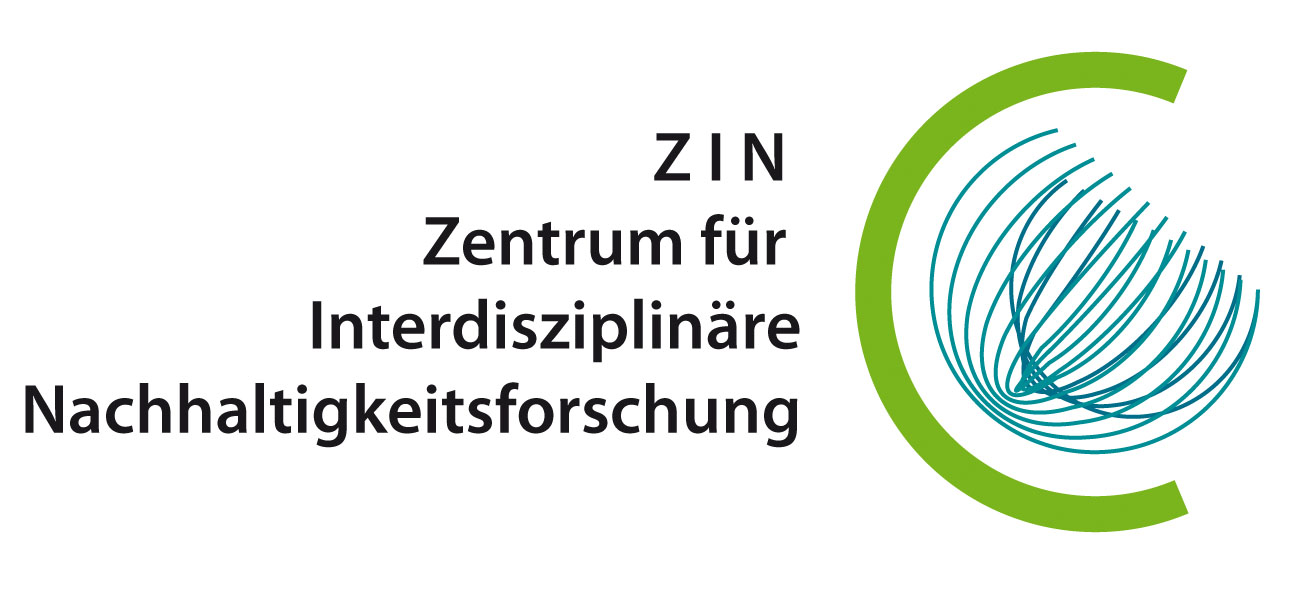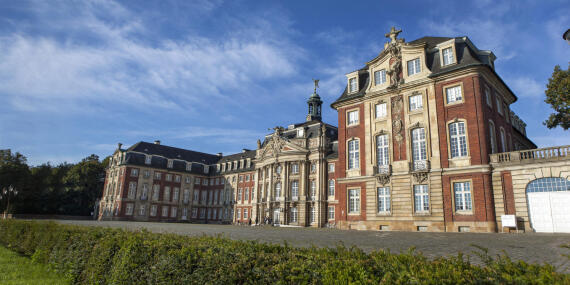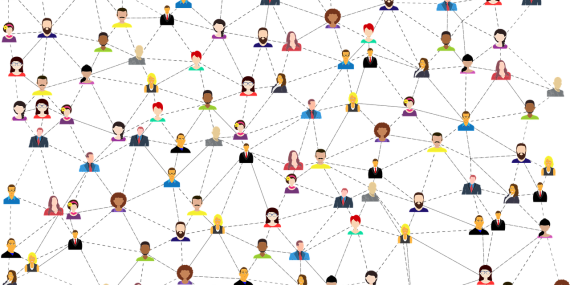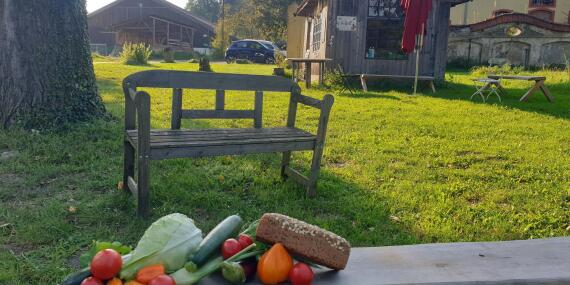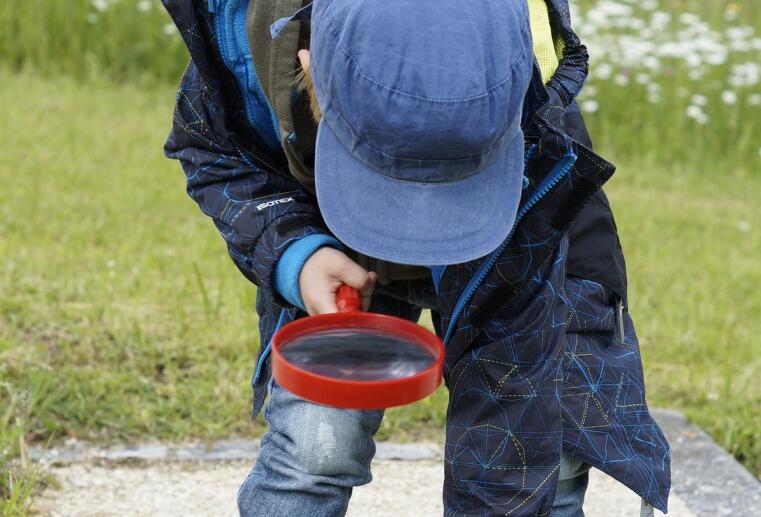

Energy projects in the Muensterland region. Strategies of legitimation communication and their impact.
Infrastructure projects for renewable energy production or transmission (e.g. in the form of biogas, solar or district heating plants or power lines) are intensively discussed in public. This communication science research project, led by ZIN member Prof. Dr. Helena Stehle, addresses the question of how strategic communication influences the attribution of legitimacy to renewable energy projects. To this end, the project examines how organizations involved in energy projects communicate with the aim of legitimacy, how this communication is perceived, and what expectations are placed on the communication.
INCITE-DEM - "Inclusive citizenship in a world in transformation"
The challenges of the transforming world test the capacity of our democracies in terms of democratic participation, political trust, and societal consensus. Citizen participation and co-creation processes are critical to support representative democracy processes and improve the quality of political decisions. New Horizon project INCITE-DEM aims at enhancing inclusive participation and civic engagement, while expanding democratic innovation and dynamic feedback mechanisms between citizens and institutional actors in representative democracies. Based on research, the project will experiment with inclusive design processes for democratic innovation in practice, by setting up so called democracy labs in 6 countries. Experiences and research will be translated into specific policy guidance and strategic policy roadmaps for a sustainable, inclusive, and innovative democracy in a world in transformation.
KlimaXperience
The KlimaXperience project is developing an interactive 3D model of the sponge city of Copenhagen as a virtual excursion for geography lessons. Based on this, teacher training courses are being designed to support the didactically reflected use of virtual learning environments for climate change education. The aim is to make complex adaptation strategies such as the sponge city concept easy to understand and teach in a practical way. The project is sponsored by "Deutsche Bundesstiftung Umwelt" and will run from September 2025 to August 2028.
LATERNE
In the project "Universities in the Anthropocene: Lighthouse Adoption and Transfer for Sustainable Development (LATERNE)", the universities of Siegen, Münster and Osnabrück are analyzing how lighthouse projects for more sustainability and global justice can be more widely disseminated at universities. For this purpose, new knowledge about the role of lighthouse projects in university transformation processes on an analytical level will be generated with the help of the Whole Institution Approach. Based on this knowledge, an exploration of existing lighthouse projects across all hierarchical levels in the dimensions of research, teaching, operations, governance and transfer and will be conducted at the three participating universities. Subsequently, the partner universities will initiate so-called sustainability workshops in cooperation with non-university institutions located in their regions in order to create new lighthouses where broad impact and scalability is considered from the beginning of the conception.
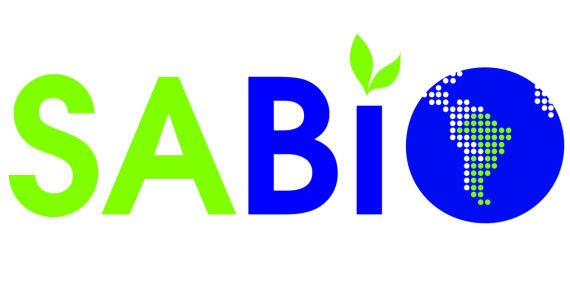
SABIO
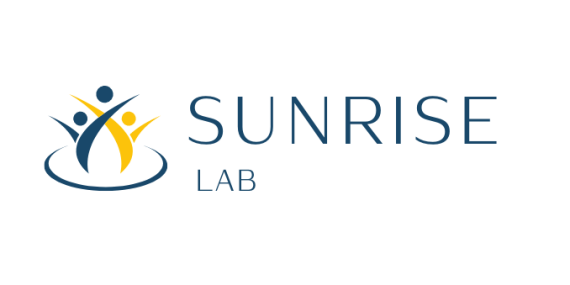
SUNRISE LAB
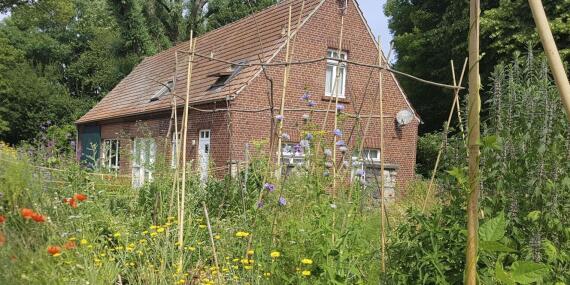
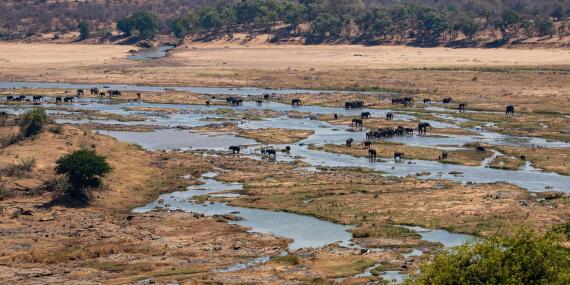
WildDrone
Completed research projects
As part of the work package "AI and Sustainability" of the project "Interdisciplinary Teaching Programme on Machine Learning and Artificial Intelligence" at the WWU, target group-specific communication and teaching materials are developed, implemented, and evaluated based on the state of research on sustainability implications, challenges and potentials of AI in connection with the didactics of Education for Sustainable Development. The project uses desk research and expert interviews to develop the materials.
The materials will address important questions about the sustainability potential of digital technologies and questions about the implications of increasing digitalization for energy and resource consumption. The social consequences of problem-solving approaches based on algorithms will also be discussed.The BIOBRAS project dealt with the negative impacts of global change on biodiversity and ecosystem services in Brazil. In cooperation with the Universities of Vicosa (UFV) and Minas Gerais (UFMG) in Brazil, the project aimed to contribute to achieving the goals of the Convention on Biological Diversity (CBD). For this purpose, concrete strategies and management rules for the protection of forest-free ecosystems needed to be developed. At the same time, the project aimed at raising public awareness and a dialogue between science and politics.
The project "BIOCIVIS - Participation to secure sustainability benefits and societal participation (in) the bioeconomy" investigated in interdisciplinary cooperation with the Institute of Molecular Microbiology and Biotechnology of the WWU Münster, which deliberative participation formats are useful for the societal discussion of the complex topic of the bioeconomy and at the same time enable a strengthening of democratic participation and the securing of sustainability benefits.
Carbon Governance Arrangements and the Nation-State
Many new governance arrangements have emerged in recent years, some of them in areas or related to activities that contribute significantly to global carbon emissions. The research project Carbon Governance investigated whether and to what extent different globally operating governance arrangements cause changes in the distribution of state power in nation states.
A central goal of social and political action is to promote and to protect the common good. At the same time, aspects and principles of sustainable development (in ecological, social and economic terms) are critical elements of the common good and unverlying conditions in the process of defining the common good. Such a 'sustainable common good' can be significantly supported by different forms of civic involvement and participation. Many newer forms of civic involvement and participation, however, are accused of only representing certain groups of citizens. In result, these forms of civic involvement and participation are said to promote only certain personal interests instead of the common good, which would lead to even more entrenched social inequalities.
Enrichment Project Sustainable Future Development
The "Enrichment Project Sustainable Future Development" is a school project in which students plan and carry out joint actions and campaigns with an SDG focus. The project leader is ZIN member Prof. Christian Fischer. The project is implemented within the framework of LemaS NRW. The project started in the school year 2020/2021 and will run until at least 2024.
The main objective of the EU 1.5° Lifestyles project is to push ahead lifestyles that are consistent with the 1.5°C climate target and to facilitate the transformations envisaged in the Paris Agreement and the EU Green Deal. That's why, the project develops guidance for policy makers, businesses, civil society organisations and private households based on scientific evidence on how lifestyle choices affect carbon footprints and how structural contexts enable or constrain options for sustainable lifestyles.
Already in 1987, the so-called Brundtland Report stated that we should also give future generations the opportunity to fulfill their needs. Today - more than 30 years later - we are still living at the expense of future generations. Our active action is more in demand than ever! The UNESCO World Cultural Programme: Education for Sustainable Development has set itself the goal of "changing the way everyone thinks and acts".
The World Culture Programme is also being implemented in Germany. Young people and proximity to the local play an important role in this.The Research Center Jülich, the Westfälische Wilhelms-Universität Münster and the University of Siegen take up a central social issue in the context of the discussion about the future of energy - namely its fundamental research, its provision and its use - from a social, cultural, engineering and natural science perspective.
F2F (From Fungal Biomass to Fine Chemicals)
The F2F research project investigated the conversion of fungal fermentation waste into fine chemicals. The aim of the research was to develop strategies and processes to reuse biomass generated during such fermentation processes and to develop it into high-quality chemicals. Thus, the project was not only relevant with regard to sustainability aspects, but also offered great potential for practical application in industry.
GreeTS
The project "Green Transformation in the global South (GreeTS): opening the blackbox of a pro-active state and the management of sustainability trade-offs in Costa Rica and Vietnam" analyzed different aspects of sustainability changes in Vietnam and Costa Rica in the fields of energy and land use.
The INNO4S project aims to further anchor the topics of sustainability, digitalization and innovation in business degree courses, but also to provide corresponding teaching materials for other disciplines on a modular basis. At the content level, case studies based on the Sustainable Development Goals of the United Nations will be developed to demonstrate both the positive innovative power of digital technologies to overcome the major challenges of our time and their negative side effects. At the implementation level, teachers are enabled to adapt the content to different target groups and formats. Accordingly, the teaching content is also designed as accessible and open educational resources.
The interdisciplinary research project "KomMA-P | Strengthening Acceptance of the Energy System Transformation" examined the conditions under which people are prepared to accept the energy system transformation. The initial idea was that they must be offered adequate opportunities to participate. The aim of KomMA-P was to find out how non-investment and low-threshold participation offerings in the energy system transformation can also be developed. To this end, the project explored how technical solutions and participation opportunities are interdependent.
Under the guiding question "How do young farmers see their future?", the project investigated which visions guide young farmers in the face of the multiple crises of our time and a dramatic worsening of the situation for many farms, and whether and to what extent the Common Agricultural Policy (CAP), with its increased focus on overall solutions, is perceived as a support for a sustainable transformation of the agri-food system.
Light and glass: Legal issues of the endangerment of species by light and glass
The project dealt with the legal requirements de lege lata and the legal and sub-legal regulation possibilities to avoid and minimize the dangers of light and glass for wildlife species. The project was to point out deficits and gaps, mainly in the field of nature conservation (species protection), immission control and building law and to make proposals for further development.
Literary Modelling and Energy Transition
"Literary Modelling and Energy Transition" was a joint project between the WWU Münster and the Karlsruhe Institute of Technology. It aimed at developing a transdisciplinary model theory in the experimental framework of the Karlsruhe energy transition project "Energiesystem 2050". The focus was on a close-up of the grand narrative that the energy transition discourse creates at the precarious interface of crisis and conflict scenarios, advanced high technologies and striking promises for the future. However, the narratives that determined the energy transition discourse and of which it consisted were based on models that were not narratives themselves: on technical and mathematical models, on conventions of description, imaging procedures and standardised practices, on procedures of statistical prognostics, on routines of research transfer.
The LITRES project explored how energy system transformation can be implemented with the help of local initiatives and how governance structures can be changed through the use of alternative energy sources. The project focused on the hitherto little researched cases in which cities, municipalities and regions experiment with new forms of alternative energy supply at the local level.
The spread of microplastics (i.e. plastic particles under 5 mm in size) is not only observed in the oceans, but also in freshwater ecosystems. Dams and reservoirs have so far largely been overlooked, although they might play an important role as sinks for microplastic.
The project MikroPlaTaS analyses the occurence of microplastic in dams and reservoirs, with a special focus on biofilm growth on plastic particles and the influence of biofouling on their sedimentation. Further, the researchers test the effects of micropastic exposure on different aquatic invertebrates.
Based on our results we can evaluate the risks of plastic pollution for the aquatic environment and support future measures.The project MOVER [(Mis)success Factors of Organised Consumer Participation] was a joint project in cooperation with the HHU Düsseldorf, the University of Siegen and the University of Cologne. Organised consumer participation (e.g. repair cafés, food sharing) can be found in both formal and non-formal, small and large, local and (inter)national forms of organisation. In practice, these organisations are often confronted with a wide range of challenges and sometimes threaten to fail because of them. MOVER investigated which factors hinder or promote the success of organised consumer participation in order to derive recommendations for action for the organisations themselves as well as for the consumer (education) policy framework.
The goal of the research project NostaClimate was the explicit analysis of the role of non-state actors and their interactions with state and individual actors. Non-state actors include civil society groups (e.g. churches, non-governmental organizations), economic actors (e.g. firms, trade unions), and subnational and local actors (e.g. municipalities). The project was funded by the German Federal Ministry of Education and Research (BMBF) within the second phase of the funding priority “Economics of Climate Change”.
The project examined the research questions with a mix of complementary methods. The possible effects of different non-state actors were evaluated on the basis of theoretical, empirical, and experimental results. In close cooperation with the advisory board, strategies and recommendations for non-state actors were developed, especially with respect to influencing individual climate protection activities, but also for policymakers (state actors), for example, to strengthen the position of non-state actors in the monitoring of climate protection activities of other actors.The project aims at identifying economically efficient and economically viable policy options for a global coal phase-out taking into account the relevant political economy. The research framework is multidisciplinary and focuses on the integrated consideration of multiple societal goals such as climate protection, health protection and competitiveness. The project focusses on three major research questions.
Reflectories to promote system and evaluation competence
This research project of the Institute for Didactics of Geography at the WWU Münster is dedicated to the question of which method is used to promote the competencies of Education for Sustainable Development (ESD), especially system and assessment competencies, in learners.
The RESOLVE project (Reducing Returns in Online Retailing - Approaches to Shaping More Sustainable Consumer Behaviour) was a joint project in cooperation with the HHU Düsseldorf, the University of Siegen and the University of Cologne. Return shipping and processing of returned goods in online retailing pollute the climate and the environment, lead to considerable costs on the part of online retailers and indirectly increase market prices for consumers. The aim of the joint project was to derive design recommendations for the preventive reduction of returns at the individual consumer level as well as for political and legal framework conditions that promote sustainability.
SmartHubs - Smart Mobility Hubs as Game Changers in Transport
The European research project "SmartHus" investigates in five real-lab projects in Munich, Vienna, Brussels, Rotterdam/The Hague and Istanbul the role that intermodal mobility hubs can play in an integrated and sustainable mobility transition by investigating how different mobility services can be linked in a user-friendly way.
Key words: Mobility Hubs, sustainable moility, intermodal mobility, real-labs
ZIN-persons involved: Prof’in Dr. Antonia Graf, Julia Hansel
STRIVE was a research project funded by the German Federal Ministry of Education and Research. It aimed at improving the knowledge base for the design of sustainable bioeconomy policies and regulatory frameworks at national and international level.
The project focused on the sustainability implications of transnational biomass trade, technological innovation, and innovation transfer in selected bioeconomy sectors with an emphasis on major biomass and knowledge producing countries and regions.Sustainability governance, networks and practices at universities - a comparative analysis
The aim of the project is to analyze current governance processes, networks and practices at universities that pursue the goal of sustainability. An empirical study will be conducted on the theoretical basis of sociological practice research, governance concepts for universities, network theory, sustainability models and existing research on sustainability practices at universities. In this study, the question is pursued: Which governance processes, network structures and sustainability practices do actors from different university status groups want to use to make universities more sustainable and what specific goals are they pursuing?
S2M (Sustainable Surfaces & Membranes)
The project, located in Interreg V Germany Nederland, dealt with antimicrobial surfaces and membrane technology. It was application-oriented and aimed at finding sustainable alternatives for conventional products such as heavy metal compounds. It should be possible to make coating materials, adhesives and components sustainable through antimicrobial application. Membranes for packaging or fuel cells were also developed.
With the energy transition, Germany has set itself the goal of transforming the current energy system into a largely CO2-free system based on renewable energies. An economic, environmentally compatible, reliable and socially acceptable energy system requires a holistic approach at system level. ENavi therefore views energy system transformation as a process of transformation for society as a whole and links scientific analyses with political and social requirements.
There is widespread agreement among experts that climate change must be slowed down as quickly as possible. Many scientists and politicians see a warming of up to 2°Celsius compared to pre-industrial levels as just about tolerable climate change. A majority of all countries finally recognised the 2°C target at the UN Climate Change Conference in Cancún after a long struggle. To achieve this, Germany must reduce greenhouse gas emissions by 95% by 2050 compared to 1990.
How this can be achieved and what impact this will have on life in a low greenhouse society was the focus of the WWF's own research activities during the WWF Pupils Academy "2°Campus - Researching for the Future", which takes place annually during the Easter and summer holidays.

